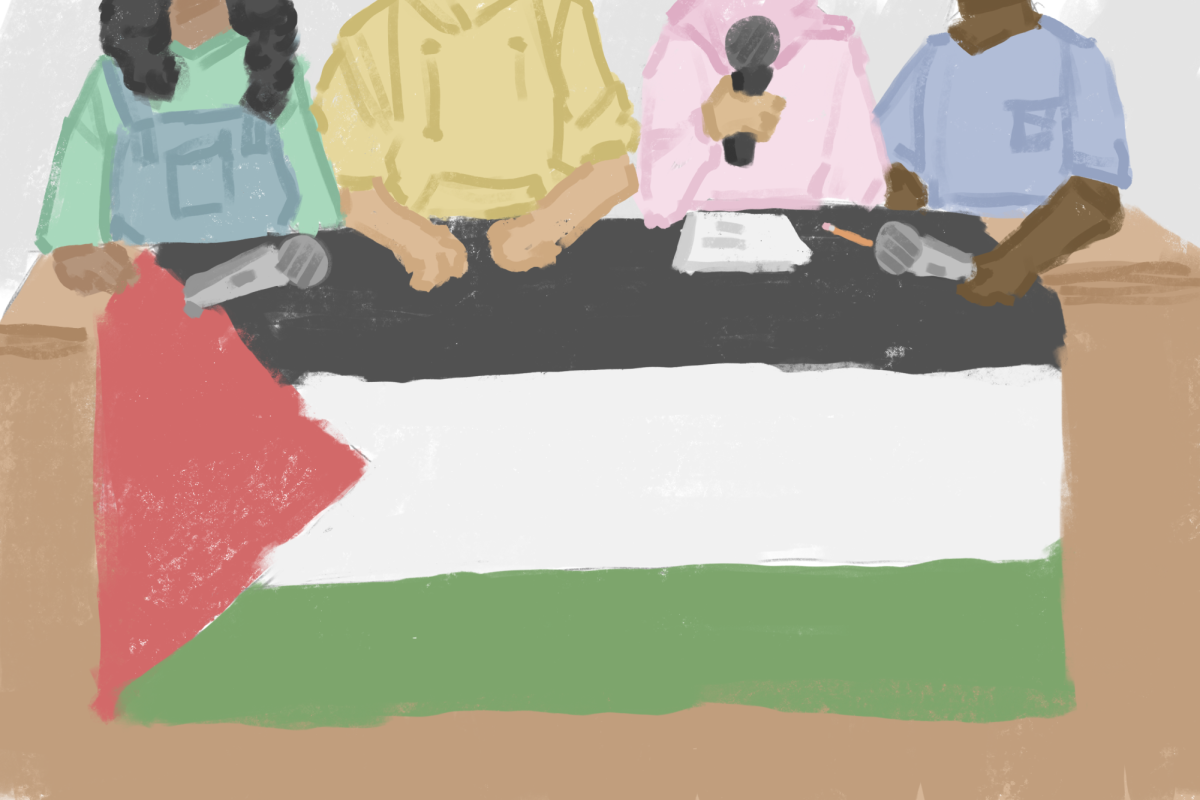Several Northwestern student organizations co-hosted a panel in University Hall Monday on “unaddressed harassment, racism and bigotry on campus.”
The discussion, which organizers especially encouraged first-years to attend, centered on themes of Islamophobia, antisemitism, anti-Palestinian racism and censorship. It was sponsored by the Muslim-cultural Students Association, the Middle Eastern North African Student Association, and NU’s chapters of Students for Justice in Palestine and Jewish Voice for Peace.
The event was titled “NU Does Not Care” to counter messages conveyed at a Wildcat Welcome training event held for first-years and transfers on Sunday, said a Palestinian student, who is a member of MENA and asked to remain anonymous for fear of retribution.
“The title specifically is in response to an event that NU held yesterday for freshmen — to reaffirm one of their guiding principles that NU does care about one another, which is not true,” he said.
Sunday’s event featured two speakers who spoke on the history of Islamophobia and antisemitism respectively: Maha Elgenaidi, the executive director of Islamic Networks Group, and Nancy Koppelman, a faculty member at Evergreen State College where she directs the Evergreen Jewish Studies Project. It was one of several new initiatives announced by University President Michael Schill last month to combat antisemitism and Islamophobia on campus.
The student representatives said students are forced to adopt a “we protect us” philosophy rather than rely on the University’s protection from racism, discrimination and outside harassment. The method was particularly important during April’s pro-Palestine encampment on Deering Meadow, they said.
Reflecting on their time at the encampment, a member of JVP said students and faculty members kept safe by linking arms and patrolling the scene. She said non-University affiliated counter-protestors arrived at the encampment and called students slurs, threatened to doxx students and destroyed property.
“It is hard to explain the level of anger in people’s eyes like they had,” she said. “That counter-protest is a clear example that (NU) actually does not care.”
Speakers also highlighted the series of emails Schill sent out to the NU community beginning in October that they said “censored” the pro-Palestine movement. A panelist and member of the NU Graduate Workers said Schill’s lack of explicit mention of Palestine qualified as a form of censorship.
She said she saw temporary addendums to University demonstration policies as a direct response to the pro-Palestine movement demonstrations, such as prohibiting tents just hours after the encampment began.
“There’s a very clear imbalance in how they crackdown on violations of University policy,” she said. “There’s been very clear instances where you see people who, I would say, are pro-Palestinian being punished for violations of University policy when you don’t see the same thing happening for people who don’t hold that view.”
Speakers emphasized the importance of filing reports and creating documentation to discriminatory incidents.
SESP senior and McSA co-president Rayyana Hassan said acts of Islamophobia continue to occur on campus.
“When these experiences happen, we want to make sure these are documented, reports are filed, to show that the same way they’re combating antisemitism, there needs to be a need to combat Islamophobia the exact same way,” Hassan said.
The panelists said understanding the University’s policies can be challenging. But, it is important to be strategic about “risk assessment” and communication between students and “not letting the University scare us into silence,” an SJP member said.
The room also applauded the first-year students and transfers who walked out during the Wildcat Welcome training session for their commitment to being “active community members” in face of “vague demonstration” policies.
In a statement posted to NU SJP, JVP and MENA’s Instagram Sunday, the students said they walked out because they “do not stand by Northwestern’s treatment of its pro-Palestinian students.”
Despite these experiences, the NUGW representative said the group highlights these challenges to not discourage the audience but empower them with information.
“When we make a fuss, when we give demands and take action, it makes them less able to put us down,” the representative said.
Email: [email protected]
X: @kelleylu_
Related Stories:
— Medill investigates professor who participated in pro-Palestine encampment, cancels his classes
— University administration rolls out new demonstration, discrimination policies






